Why are Indian Sikhs angry?
- Published
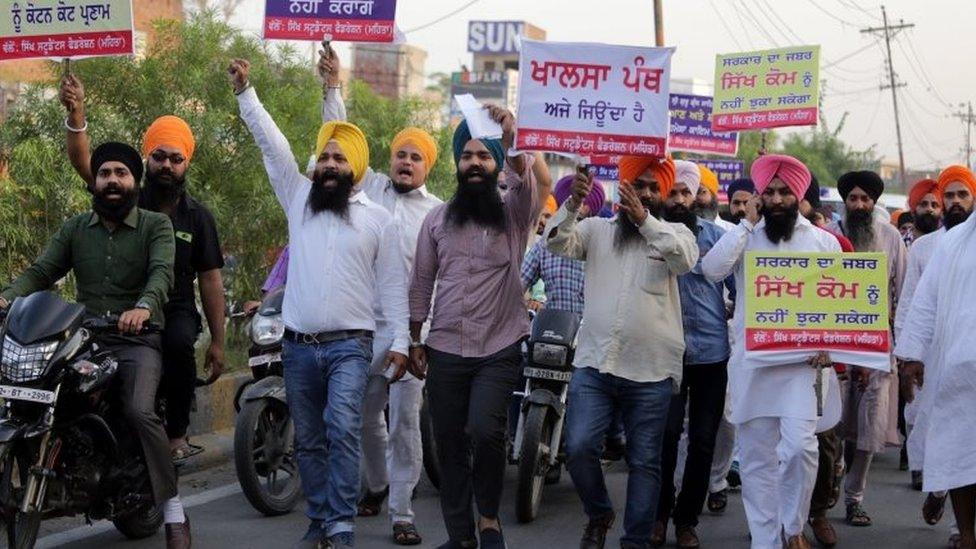
Sikhs in the northern Indian state of Punjab have staged protests, enforced strikes and blocked roads in several towns and cities in the past week.
BBC Hindi's Ravinder Singh Robin explains why the Sikhs are angry.

Why now?
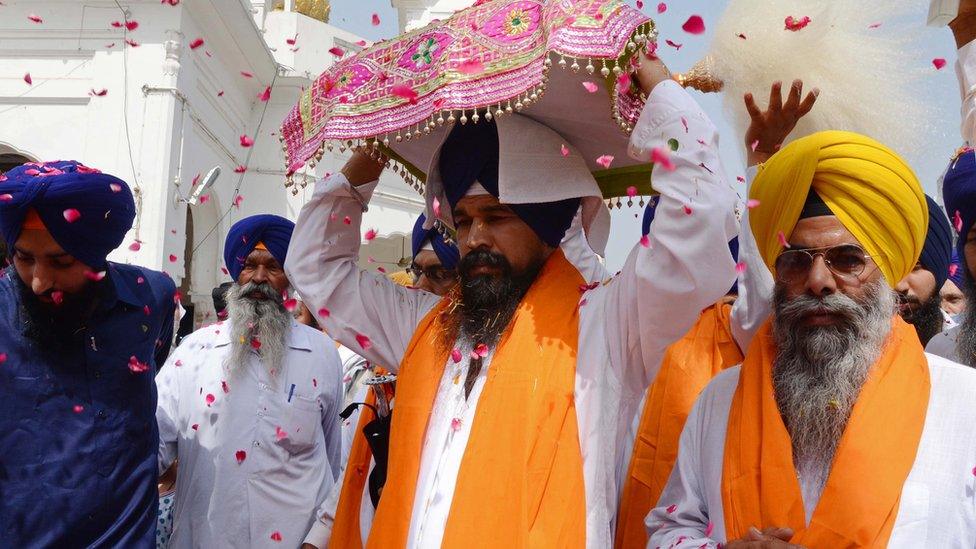
The spark for the current bout of protests came after a torn-up copy of Sri Guru Granth Sahib - Sikhism's holy book - was found in the village of Bargari, near Kot Kapura in Faridkot district.
The alleged desecration of the holy book angered many who came out to protest in Behbal Kalan, a nearby village, last Wednesday.
As tempers soared, police opened fire. They say they shot in the air, but two protesters were killed and dozens of others wounded.
The killings have further angered Sikh community members who have taken to blocking highways and bridges, demanding action against those who they say desecrated the holy book.
The protesters have said they will continue the blockade for three hours every day for another week.

Are all protests about one incident?
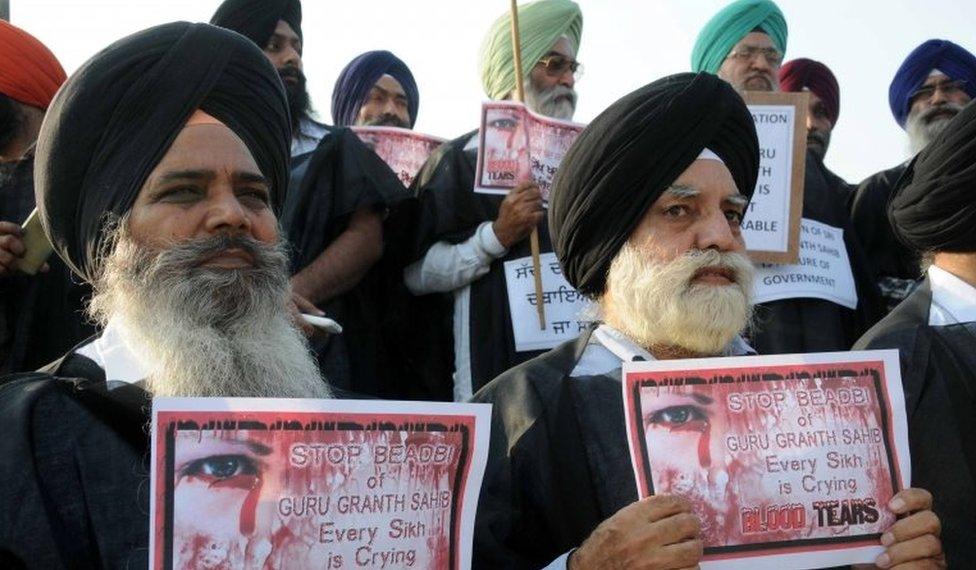
No, in the past week there have been at least five reports of copies of the Guru Granth Sahib being desecrated.
Torn-up copies of the holy book have been found in different areas of the state - at Jandiala village in Jalandhar, Ludhiana, Tarn Taran near Amritsar, Kot Kapura and Gurusar Jalal village in Bathinda district in the south of the state.
Police say they are investigating all the cases and claim to have some leads.
Dozens of people have been questioned and at least two people have been arrested in connection with the desecrations. Police said on 19 October that another 52 had been arrested "as a precaution".

Who are the protesters?
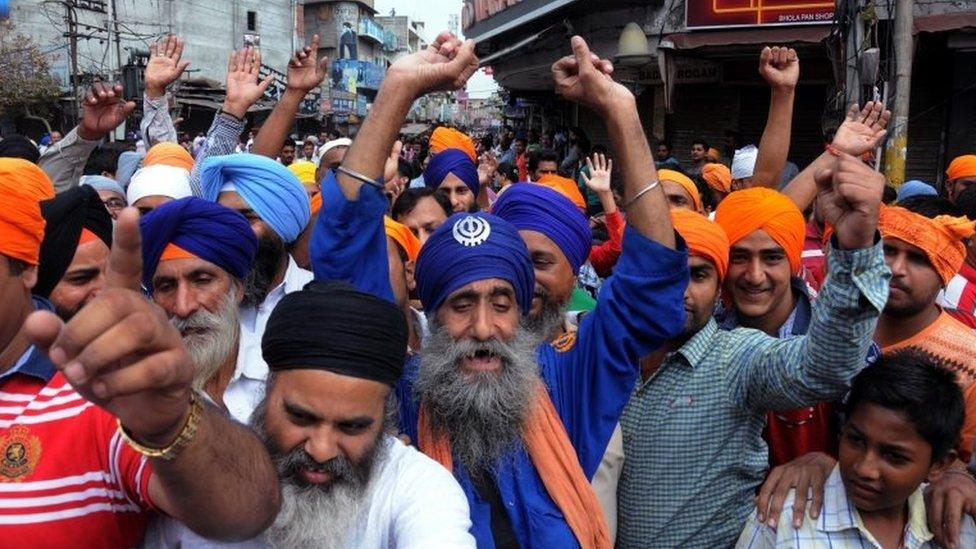
The protests have disrupted life in large parts of Punjab in the past week.
The protesters, numbering in their hundreds, are mostly from unorganised groups although some radical Sikh organisations like the Damdami Taksal and Ajnala faction have also been seen at demonstrations.
The protesters are demanding that those they accuse of desecrating the holy book are arrested and compensation be paid to the families of the two men who were killed in police firing.
In some places, there have also been spontaneous protests by ordinary Sikhs who say they are fed up of eight-and-a-half years of misrule by the state government - a coalition of the regional Shiromani Akali Dal and India's governing Bharatiya Janata Party.
In some districts, farmers - who had protested earlier this month accusing the government of being anti-farmer, external - have also joined the protests.

Who is behind the desecrations?
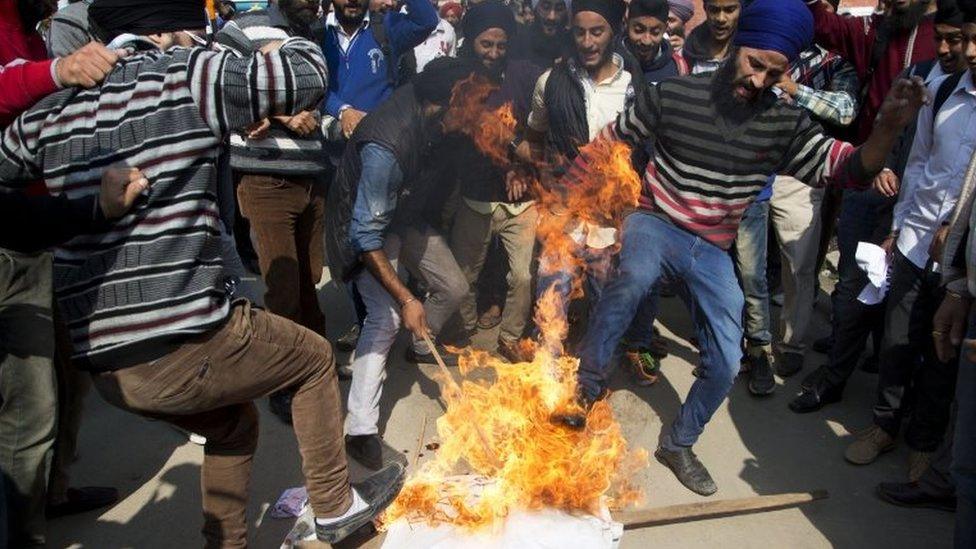
Although some Sikh lobby groups and protesters have accused "a religious faction" of desecrating their holy book, the authorities say they are not sure who is to blame.
Punjab Chief Minister Parkash Singh Badal has said there was a "deep-rooted conspiracy" to target religious places in the state by "some anti-social elements".
He has promised that anyone found guilty in "this unpardonable offence would not be spared at any cost and exemplary action would be taken against them so that it acts as a deterrent for others to indulge in such a dastardly act in future".

What are the authorities doing?
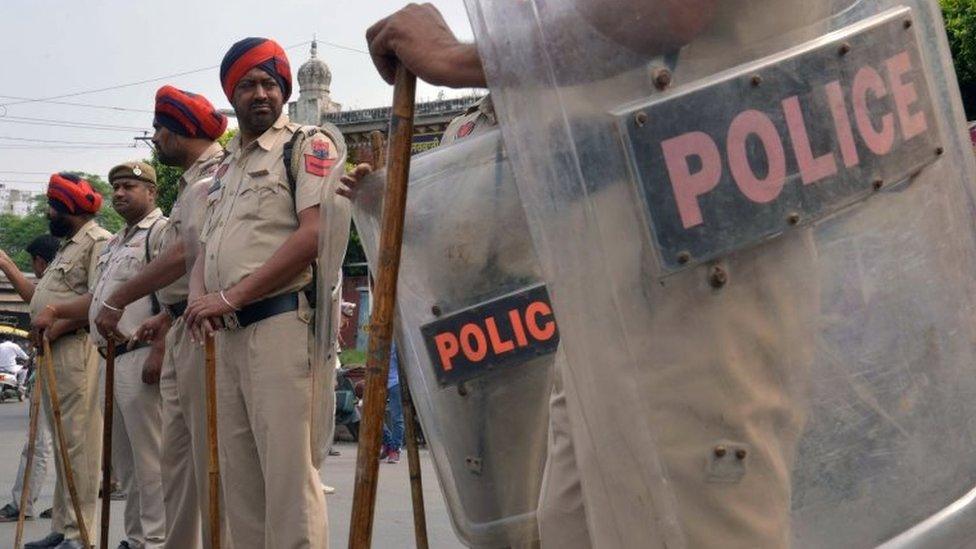
India's Home Minister Rajnath Singh has promised Chief Minister Badal "all possible help" to restore peace in the state.
The Akal Takht, the supreme temporal seat of Sikhs, the opposition Congress party and the Sikh clergy have all appealed for peace.
With the protests showing no sign of dissipating, many are warning that order must be restored quickly in a state which has a troubled past.
Although Punjab has been peaceful for nearly two decades, the state was the scene of a violent insurgency for an independent Sikh homeland in the 1980s and the 1990s.
In 1984 Indian security forces killed many Sikh militants after they seized the Golden Temple in Amritsar, the Sikh religion's most important site.
In revenge, Indira Gandhi, the then-prime minister, was shot dead by her Sikh bodyguards.
